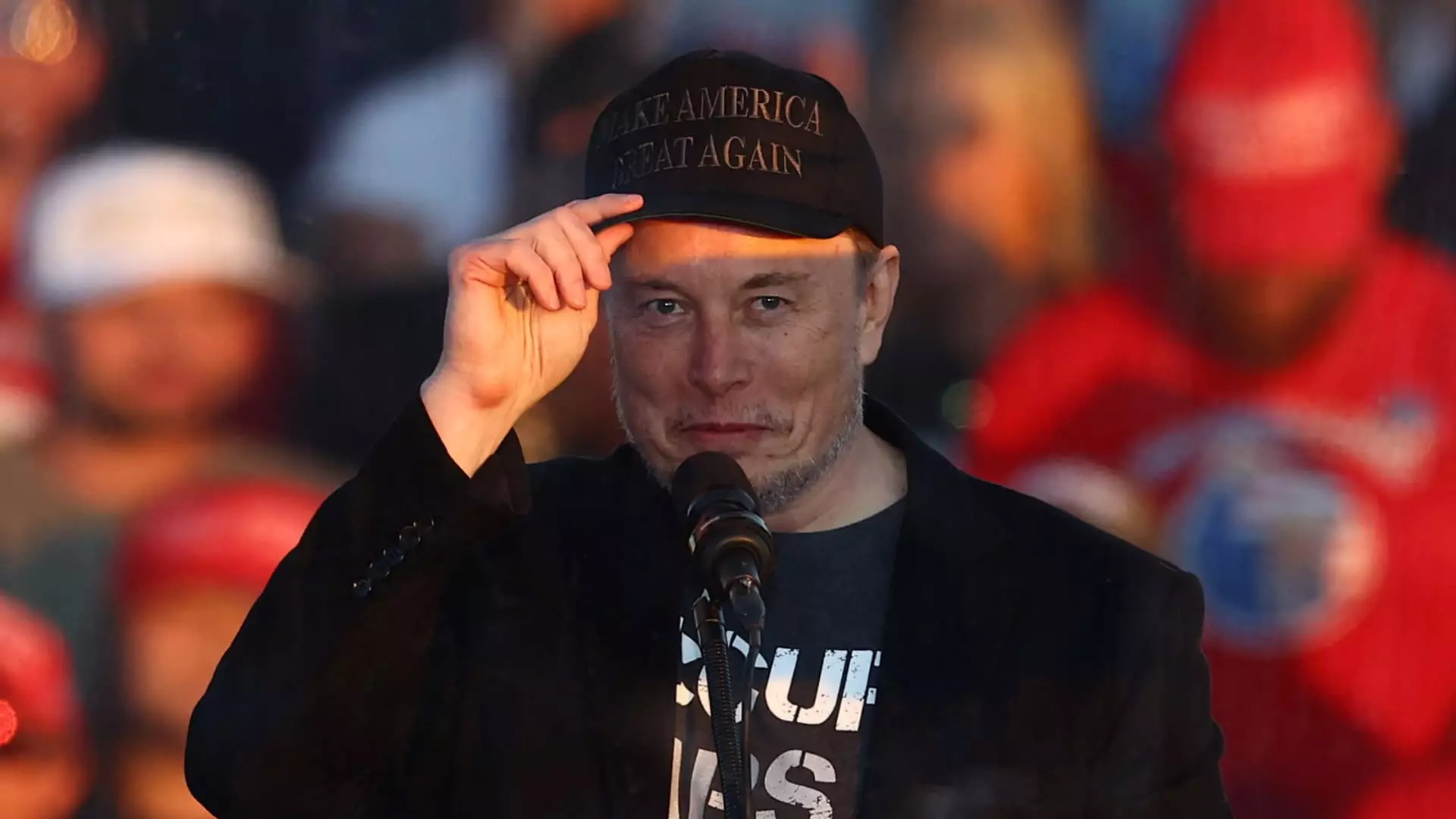The overlap between technology and politics has increasingly become a site of contention, especially with influential figures like Elon Musk entering the fray. Recently, Musk has stirred controversy by lending his public support to the far-right Alternative for Germany (AfD) party, drawing criticism from various quarters. This raises vital questions about the responsibilities of tech moguls in the political arena and the potential ramifications of their endorsements.
In a bold act that sent ripples through the political landscape, Elon Musk took to X (formerly Twitter) to endorse the AfD, stating, “Only the AfD can save Germany.” Musk’s statement was prompted by a post from Naomi Seibt, a figure known for her white nationalist views and denial of climate change, who claimed that Friedrich Merz, the presumed next Chancellor, was uneasy about following Musk’s and Argentine President Javier Milei’s examples. By engaging with such ideologically charged content, Musk arguably legitimizes fringe views that many politicians and leaders are striving to marginalize.
The Metstatus was quick to react. Senator Chris Murphy (D-Conn.) criticized Musk, labeling him as an “out-of-touch billionaire” who offers support to a party that has been described in severe terms by many, including Murphy himself. His claim that the AfD’s mission aims to rehabilitate Nazi notions resonates deeply with a history many would prefer to see remain buried. By associating these views with his considerable public platform, Musk risks casting a long shadow over democratic institutions that thrive on deliberation and consensus-building.
German Chancellor Olaf Scholz quickly dismissed Musk’s assertion, a rebuttal that underscores the disconnect between Musk’s view and mainstream German sentiment. Scholz’s government, rooted in center-left ideology, is a stark contrast to the AfD’s far-right positions. Recent polling places the AfD in a surprising second position ahead of crucial elections in February, suggesting a significant shift in voter sentiment or frustration with traditional parties. The AfD’s rise speaks volumes about the current climate in Germany, where debates over immigration and national identity continue to inflame political discourse.
Musk’s engagement with the AfD is not an isolated incident; it fits into a broader pattern of far-right parties gaining ground across Europe. In the Netherlands, Austria, and Finland, these movements echo similar sentiments of nationalism and skepticism towards globalization. Interestingly, Musk has also extended his support to leaders like Italy’s Giorgia Meloni and Britain’s Nigel Farage, showcasing a growing faternity among right-wing factions globally. This phenomenon complicates the narrative around innovation and progress, as Musk’s advocacy for electric vehicles, a cornerstone of his business ethos, contrasts sharply with the AfD’s skepticism towards climate initiatives.
The implications of Musk’s political endorsements extend into the economic sphere, particularly concerning Tesla’s operations in Europe. The AfD’s disapproval of Tesla’s factory near Berlin stems from its perception that it does not benefit the local community. This sentiment could complicate Tesla’s market position in an already challenging European landscape, where sales have dropped despite a rising trend in electric vehicle adoption. A deeper analysis reveals a conflict between Musk’s personal ideology and the operational realities of his companies, raising questions about how his political engagements might impact investor confidence.
As tech leaders like Elon Musk engage in political discourse, it is crucial to assess the broader repercussions of their endorsements. By voicing support for parties like the AfD, Musk not only risks alienating a significant portion of the electorate but also contributes to the normalization of extremist viewpoints. The intersection of technology and politics demands a level of accountability that considers the ethical implications of one’s influence. In an era where information travels faster than ever, careful consideration of the narratives we promote is necessary to safeguard democratic ideals and social cohesion.

